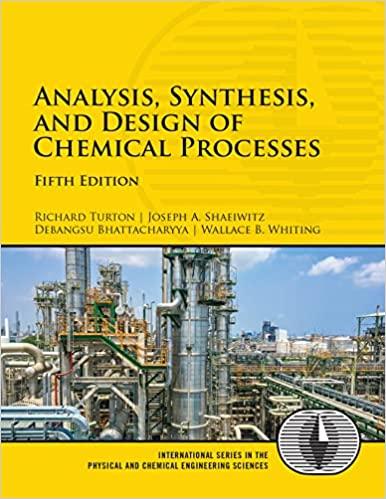Consider the problem of batch scheduling three products (A, B, C). The number of batches of B
Question:
Consider the problem of batch scheduling three products (A, B, C). The number of batches of B required in a given time is twice the number of batches of A and of C. One possible scheduling plan is shown in the Gantt chart in Figure P3.16, which shows the sequence ABBCABBCABBC…. Using the information in Figure P3.16, answer the following questions:
How many batches of A, B, and C can be produced (using the sequence ABBCABBC…) in a 500 h period?
How would the answer to Part (a) change if there was unlimited intermediate storage (uis) available?
How many batches of A, B, C can be produced in a 500 h period if single product campaigns are used? (Remember, it is still necessary to produce twice the number of batches of B compared to A or C.)
If the desired yearly production volume of product B is 250 m and the plant operates for 6000 h/y, how much product storage for product B is required if a constant supply of B is to be maintained and single product campaigns are used as described in Part (c)?
Is this a flowshop or jobshop plant?
Figure P3.16
Step by Step Answer:

Analysis Synthesis And Design Of Chemical Processes
ISBN: 9780134177403
5th Edition
Authors: Richard Turton, Joseph Shaeiwitz, Debangsu Bhattacharyya, Wallace Whiting





